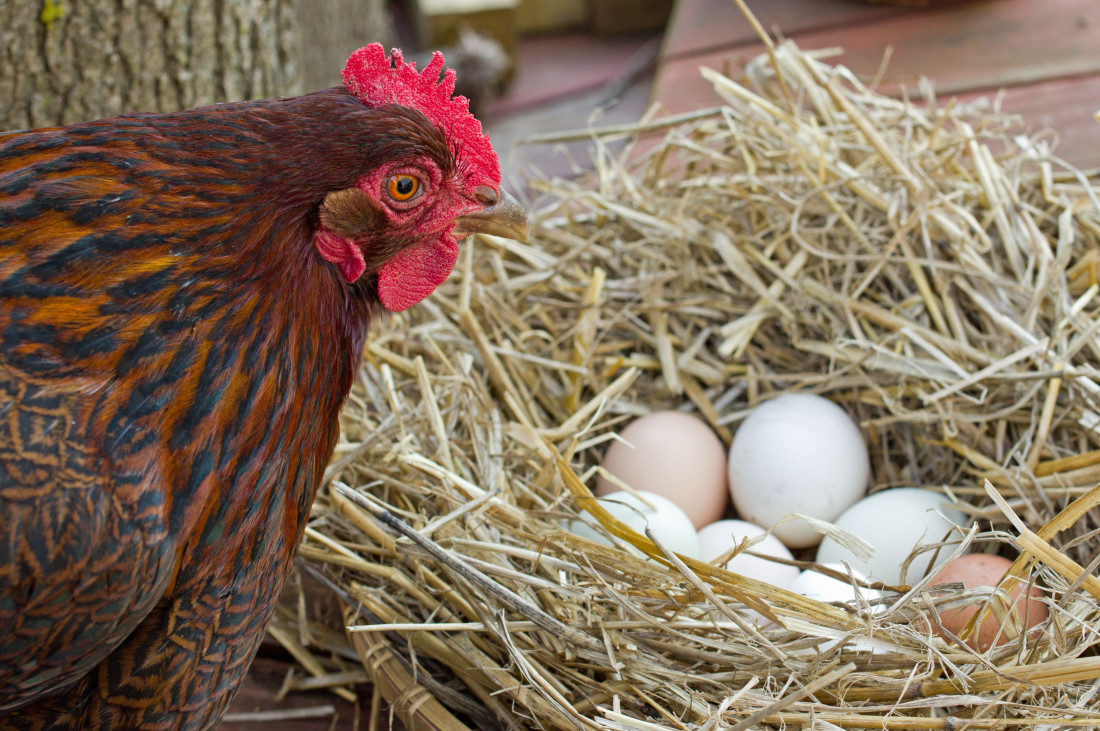The chicken clearly rules the roost when it comes to American egg production and consumption, but duck and quail are increasingly holding their own. So, what’s different about them? How do they taste? Before reaching out to some of our local restaurateurs, I decided to do a little taste test of my own.
I visited an Asheville-area farmers market and stocked up. I decided the best way to really taste them was to hard-boil them — no fancy sauces, no special cooking methods, just a good old-fashioned, hard-boiled egg. Here’s what my personal taste test revealed:
Quail: Tangy, dense, delicate and grassy.
Chicken: Earthy, mild and ordinary.
Duck: Creamy and intense. It’s a rather ramped-up version of the chicken egg. The yolk is much larger than the chicken yolk.
With that behind me, I set out to discover some trade secrets. Are there tips for choosing and storing eggs? Where are local restaurants buying them? What are they doing with them?
Traci Taylor, co-owner of Fig Bistro in Biltmore Village, says that she gets her eggs from Mountain Food Products distributors, local farmers and tailgate markets. She prefers local, organic and cage-free eggs (for all the obvious reasons) and says that freshness and proper storage in the refrigerator in a dry container are what make a great egg.
What does she look for when picking them out?
“It’s a bit technical, but if you hold an egg up to a light in a dark room, there will be an air gap at the blunt end of the egg if it is older. And of course, look for cracks and maybe discoloration,” she cautions.
She says she uses duck eggs in much the same way as chicken eggs. Quail eggs she uses for smaller, more decadent recipes, as well as “over-the-top garnishes,” or for cracking over steak tartare.
Jacob Sessoms, executive chef at Table, says he sources his eggs from Farside Farms in Woodfin. “I buy fresh and locally produced; I trust what they’re being fed,” he says. He explains that a chicken with a well-balanced diet will yield an egg that is high in protein, and the yolk will be deep in color, firm in texture and rich in flavor.
He adds that quail and duck eggs are also great. “We use quail eggs frequently in canapés for their ideal size and duck eggs on heartier plates where a higher-protein content egg is appropriate. The protein of a duck egg is higher, so the white cooks firmer and quicker,” he explains.
When a café has a name like Over Easy Café, you can well imagine that eggs are pretty important to its bottom line. Carson Lucci, owner of the downtown eatery, says that eggs are in about 90 percent of the dishes on the menu, so quality is critical to success. Over Easy chooses to buy its eggs from Queen B Farms in Mebane, which is about three hours east of Asheville.
“They have great ethics in raising their birds,” she says. “The chicken, ducks and turkeys are never debeaked, never forced into molting and are not fed any GMO crops. They are also not given hormones or antibiotics.”
While Queen B Farms’ chickens are not 100 percent vegetarian-fed because out on the pasture they will naturally eat bugs and worms, they are moved to fresh grass as needed. They are allowed to spread their wings, nest and to take dust baths — all natural behaviors. The birds are also certified by the National Poulty Improvement Plan. “A great egg comes from a happy chicken,” Lucci says.
Cindy Broaddus, innkeeper at North Lodge on Oakland, a bed-and-breakfast near Biltmore Village, also prefers to purchase her eggs locally at farmers markets, and free-range and organic are her personal choices. “They just have a richer flavor,” she says.
She recently tried her hand at a duck egg crème brulée she describes as “fantastic.” One of Broaddus’ popular breakfast egg recipes is her green chili strata (see sidebar).
What’s the difference in cost among the three types of eggs? On average, per dozen, chicken eggs range $3 to $4; duck eggs run $5 to $10; and quail eggs are anywhere from $6 to $12.
So, are you ready to do your own taste test? Egg-cellent.




What may not be obvious to the average restaurant guest is how difficult to can be to keep chickens and get eggs. Over the years, I’ve lost dozens of chickens to weasels, raccoons and black bears. There’s nothing more depressing than to go down to your chicken yard or coop in the morning and find that, say, a bear has killed and eaten all your hens, or that raccoons have cut the throat of your chickens and just left them to die, as sport.